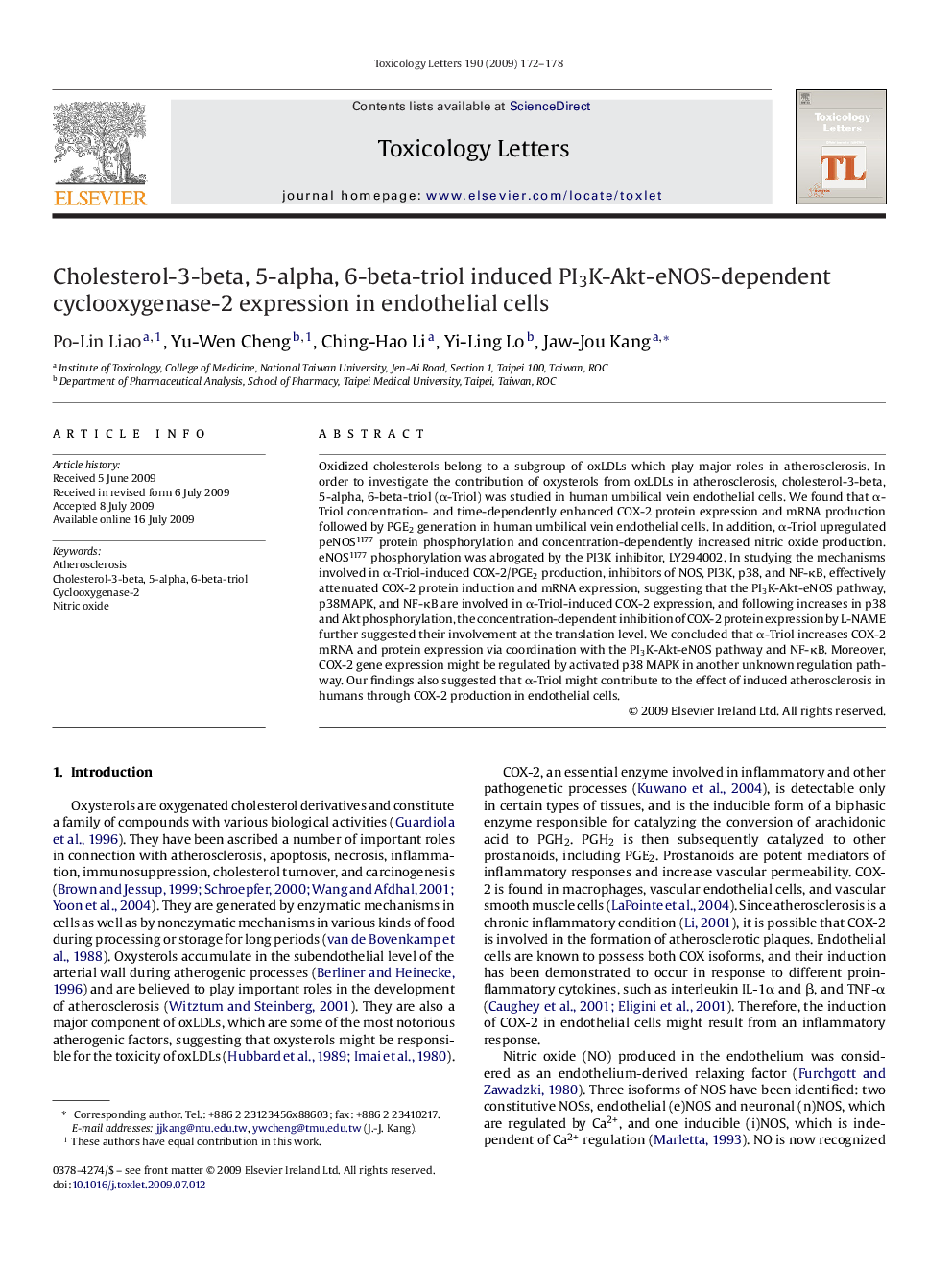| Article ID | Journal | Published Year | Pages | File Type |
|---|---|---|---|---|
| 2601017 | Toxicology Letters | 2009 | 7 Pages |
Oxidized cholesterols belong to a subgroup of oxLDLs which play major roles in atherosclerosis. In order to investigate the contribution of oxysterols from oxLDLs in atherosclerosis, cholesterol-3-beta, 5-alpha, 6-beta-triol (α-Triol) was studied in human umbilical vein endothelial cells. We found that α-Triol concentration- and time-dependently enhanced COX-2 protein expression and mRNA production followed by PGE2 generation in human umbilical vein endothelial cells. In addition, α-Triol upregulated peNOS1177 protein phosphorylation and concentration-dependently increased nitric oxide production. eNOS1177 phosphorylation was abrogated by the PI3K inhibitor, LY294002. In studying the mechanisms involved in α-Triol-induced COX-2/PGE2 production, inhibitors of NOS, PI3K, p38, and NF-κB, effectively attenuated COX-2 protein induction and mRNA expression, suggesting that the PI3K-Akt-eNOS pathway, p38MAPK, and NF-κB are involved in α-Triol-induced COX-2 expression, and following increases in p38 and Akt phosphorylation, the concentration-dependent inhibition of COX-2 protein expression by L-NAME further suggested their involvement at the translation level. We concluded that α-Triol increases COX-2 mRNA and protein expression via coordination with the PI3K-Akt-eNOS pathway and NF-κB. Moreover, COX-2 gene expression might be regulated by activated p38 MAPK in another unknown regulation pathway. Our findings also suggested that α-Triol might contribute to the effect of induced atherosclerosis in humans through COX-2 production in endothelial cells.
